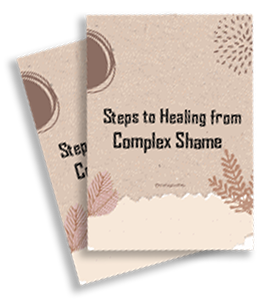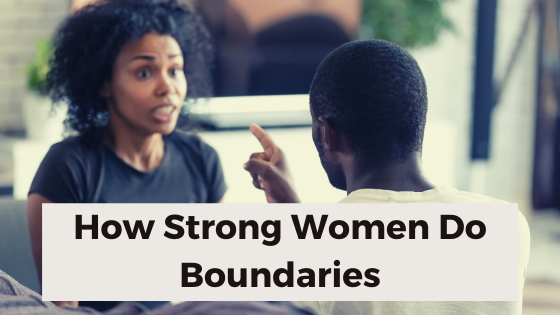It’s painful when an important person in your life stops showing up in the same way. How do you hang on to a relationship and yet let go at the same time when things have changed?
Maybe you’re a mother and your child is getting ready to start kindergarten. Your baby has morphed into a school-aged kid and needs you in a different way. You may feel like you’ve lost your footing for a minute as you learn this new territory.
Maybe your parent is aging and your role is changing from seeking your parents for advice, to being a parent to them. You miss your parents even though they are right there, but no longer available to you in the ways that they were before. You are grieving this loss and learning a new role at the same time.
Maybe your friend has remarried or had a child or even ended their marriage. Their life is changing and yours is staying the same. This affects your relationship as she may be available less to you or not need you in the same way. You’re not on the same level as you once were and you may have a mixture of jealousy, fear, and wishing the world would stop for a minute and go back to the way it has always been.
Maybe your partner wants to move to a new location and you don’t, or maybe he developed a new friendship or started going to the gym. Small and big things can throw a relationship off-kilter.
Or maybe your child is a quasi- adult and you’re struggling to find a new role as mentor and friend, no longer authority figure and accountability holder. Your job of raising is done, but you can’t find the button to turn off the autopilot parent that’s been on for the past 20 years.
I remember my best friend, Rosie’s, reaction to my pregnancy after we had shared two pregnancies with our older children. When I told her I was pregnant, she said, “ I just can’t have another one right now.” As if I expected her to share this third pregnancy together. I didn’t, but we had before and now our worlds were diverging. We had to pivot. I remember mentioning my pregnancy to her from time to time and her off-handed comment, “ Oh, I forgot you were pregnant.” We didn’t share this like we had the others and there was some sadness there.
But our relationship adjusted and now 15 years later, 20 years into our friendship, it is still going strong.
Over the course of my marriage, children, illness, aging, career shifts have challenged our relationship in powerful ways. It is not the same as it was 27 years ago and it will not be the same as it is now 10 years from now.
When my son went to college and I offered help, he said, “I’ve got it, mom.” That stung. Our relationship had turned a corner. I had to figure out how to settle into this new role.
Some relationships serve their purpose, run their course and this change means an end. We have to grieve this loss and that’s okay.
How do you let go and accept change in a relationship that you fully intend to maintain?
1. First, learn to deeply accept that change is inevitable.
I remember talking to a friend and grappling with the reality of getting older. He said, “You need to embrace getting older because it’s better than the alternative.” I said, “what’s the alternative?” He quickly answered, “Being dead.” I had never heard anyone put it that way, but when he did, something shifted in me and I was able to embrace aging in a very different way. It is, of course, inevitable. And the same goes for your relationship.
Changes will happen in your relationship and you can embrace it or deal with the alternative – ending or destroying your relationship. Either way, you’re not going back. It sounds dark, but it’s really a beautiful opportunity for something healthy if you allow it.
Often one of the first reactions to change is a power struggle.
You push against it, trying to bring your system back to equilibrium. Any time there is a change in a system (your relationship is a system) the unchanged parts of the system react by trying to pull the system back to equilibrium. What does this look like in your relationships? A power struggle. Your reaction is often to assert yourself more, push your wants and needs on the other to make them fall into line like before, but what happens is the opposite. They push back and now your relationship is firmly into the first stage of change.
Power struggles suck. You argue or give the silent treatment in an effort to bend their will or express your stance. You often don’t say the real, necessary words- “I’m scared, I don’t know how to do this role, I’m sad, I miss the old us.” Instead, you blame. Feelings get hurt and distance grows.
OR you can do something different.
2. Accept that you are seeing your child, partner, mother or friend differently.
They are changing and you are learning more about them as changes happen. It’s okay if there is a part of you that is repulsed or fearful of seeing them through this new lens. It is not a verdict for your future, but it is the result of a shifting view.
The key ingredient to navigating change in relationships is a decision that you will accept the person in front of you, not try to change them- that you will give them space to grow, even if it isn’t in the direction that you would like, that you put your faith in God, not people- even those you love dearly.
Instead of focusing on change, focus on understanding them better because all behavior makes sense in its context.
And as your focus on understanding them, ask yourself, why do I want to fight against this change? Is this relationship worth weathering it? Sometimes, like with your relationship with your child, the answer is a no-brainer. Sometimes, it takes some deep soul searching.
Remember, we always have choices to make. You are not a helpless victim to anyone’s shift. You can choose to ride out the storm, recognizing that things are shifting or you can say, no thank you very much and hop off the ride.
Some changes aren’t always healthy and boundaries need to be erected.
No, husband, it’s not okay if you want to have an open relationship. No, child, I will not support you choosing addiction,
But when it’s not a boundary issue, but rather a change and growth issue- when you’re losing control or feel left out and abandoned, then it’s your time to ask the hard questions- What are you afraid of? What needs aren’t being met anymore? How can you fill those yourself?
This is a time not just to re-discover your person, but to re-discover yourself and your strength. Think back to past changes and what got you through those times. Envision your healthiest self showing up in this relationship in the future. Remind yourself that your spouse can change and not change their love for you. Remind yourself that you’ve poured good things into your child and even if they veer off the path, you are the beacon that will bring them back.
Remind yourself that good friendships can withstand the storms. Remember that your presence is a valuable influence, even if it feels less so now. Choose to be your best cheerleader.
And last, be kind. Be kind to yourself as you grieve the loss of change. All of your feelings are good and the less judgement the better. Be kind to your person as you accept what you would rather not, be kind to others who may be weathering this change along with you. Pause, reflect, talk to a trusted friend. Focus on cultivation strength always, but never require it.
And I will leave you with this quote:
Any change, even a change for the better is always accompanied by discomfort.
-Arnold Bennett
You’ve got this, my friend.

Subscribe and Heal your Relationships.
You deserve a healthy, loving relationship and it starts with You. Learn how to untangle
Complex Shame™ and co-dependency to finally have the beautiful, secure relationship with
yourself and others that you’ve always wanted.
Subscribe and as a thank you, I’ll send you the Steps to Healing from Complex
Shame™.













